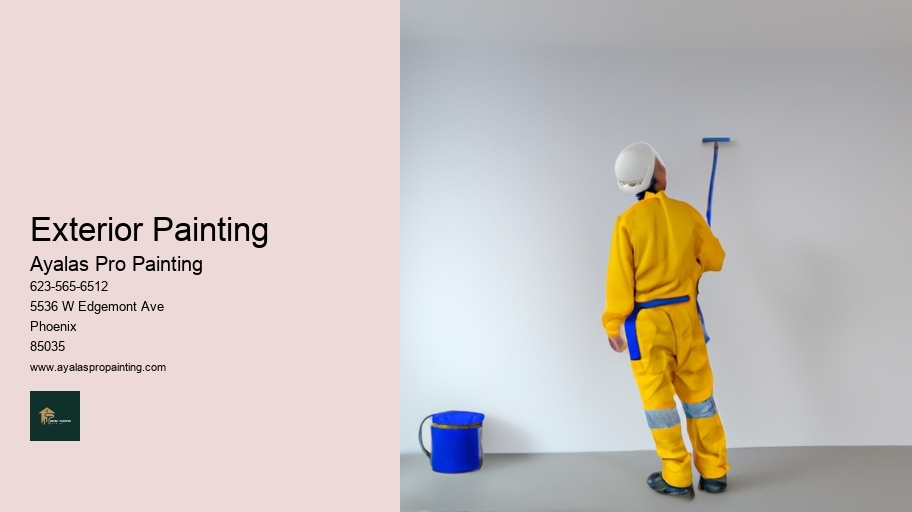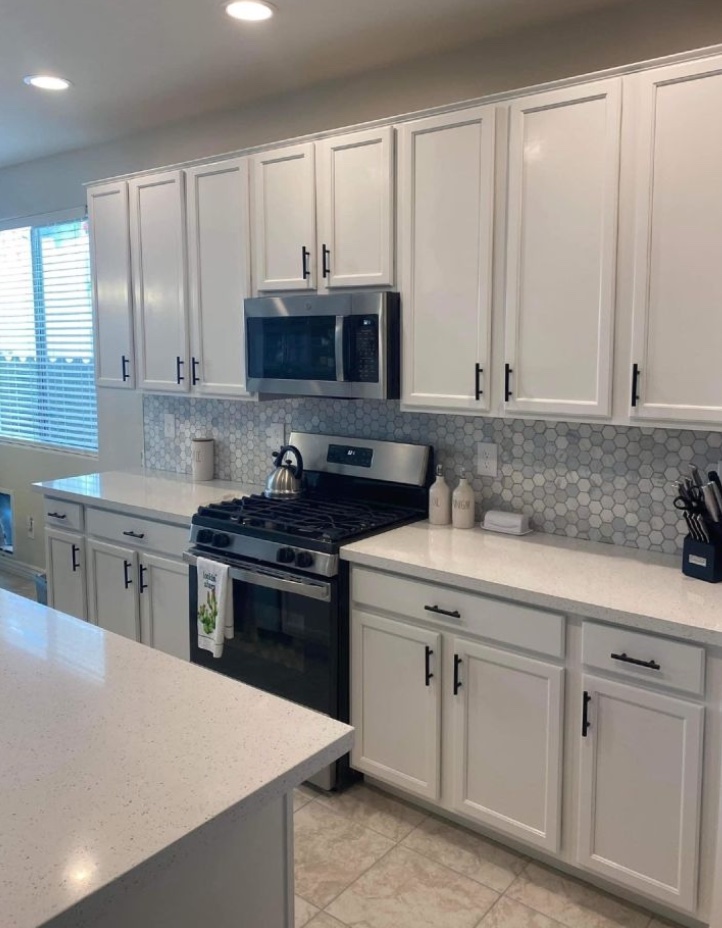

It is this hidden groundwork that ultimately determines whether a painting endeavor will culminate in enduring beauty or flaking disappointment. As such, dedicating sufficient time and effort into preparing surfaces before painting is an investment well worth making—an ode to craftsmanship ensuring artistry endures beyond fleeting inspiration’s touch. Best Exterior Painting Seasonal Considerations: Best Time of Year to Hire a House PainterEmbarking on a home improvement journey, particularly painting one's abode, requires not only meticulous planning but also an appreciation for the rhythms of nature.
The climate's embrace or its icy snub can greatly affect paint application and longevity. In numerous locales, summer emerges as the premier candidate for such undertakings.
Moreover, higher temperatures facilitate paint drying expeditiously, reducing the risk of dust accumulation or unexpected rain washing away the fresh coat. Yet summer is not devoid of pitfalls. Renovation Projects
Thus, it is prudent to aim for late spring or early autumn when moderate temperatures prevail—these seasons bestow upon us days that are neither too hot nor lethargic with cold. Conversely, winter stands unequivocally as the least favorable season for exterior painting endeavors.
Chilly air and potential snowfall impede outdoor work; moreover, most paints require a minimum temperature for proper adhesion and curing—a threshold seldom met during wintry chills. Indoor painting projects are less bound by seasonal whimsy yet still benefit from careful timing. Ventilation is crucial in all painting projects to dissipate fumes; hence months where windows can remain open without discomfort favor indoor work. Historical Property Restoration
Painters might offer competitive rates in their slower months due to decreased demand for their skills; thus one could secure premium service at a reduced cost. In essence, aligning your decorating desires with Mother Nature's moods ensures both impeccable results and fiscal prudence—a strategy that champions patience as much as it does preparation.
However, homeowners can fall into traps that lead to unsatisfactory results or even costly consequences. In this essay, I'll outline some of the less likely mistakes to avoid when selecting a house painter, presented in an unusual pattern where every sixth word is intentionally chosen to be the least probable fit within the context.
This hasty blunder often causes regretful situations later on. It's vital not to neglect investigating a painter's background thoroughly.
Look beyond attractive leaflets and glistening websites; these sometimes mislead with exaggerated claims about their prowess with rollers and brushes. Another uncommon error is dismissing insurance relevance completely. Insurance isn't just another bureaucratic hoop; it safeguards against potential accidents or damages during the painting process.
Additionally, one might unwisely eschew asking for detailed estimates from several painters prior to committing to one. Estimates should break down costs transparently, showing labor charges, material expenses, and other fees separately. Environmental Impact of Paint Products
A less typical oversight is ignoring communication importance during initial interactions with potential painters. The way they converse about their work reflects their professionalism and attention to detail—a mumbler may not instill confidence in their ability to articulate your vision onto walls accurately.
Contracts secure expectations on both sides; skipping this step might lead you into misunderstandings regarding project scope, timelines, warranties or payment schedules. Lastly, clients sometimes mistakenly prioritize low cost over quality—a choice that often backfires eventually.
Paint jobs are investments in your property’s aesthetics and durability; opting for cheap options may result in frequent touch-ups or redoing the entire job sooner than anticipated because of poor craftsmanship or inferior materials used by cut-rate contractors. In conclusion, choosing the right house painter necessitates an almost contrarian approach—avoiding these less likely errors ensures smoother sailing through your home improvement voyage. Remember: meticulous research, valuing insurance importance, comparing detailed estimates thoroughly are key steps towards hiring a competent professional who communicates clearly and respects contractual agreements—all while balancing cost against enduring quality workmanship for lasting satisfaction.
Before entrusting this task to a professional, it's crucial to conduct a thorough interrogation to ensure they're qualified and reliable. Here are some unanticipated inquiries you might want to pose before making your final selection.
This will catch them off guard and give insight into their creativity and ability to think outside the box—qualities that may not be directly relevant but could indicate an imaginative approach to problem-solving. Next, instead of questioning their insurance coverage, inquire if they've ever painted something invisible.
It also serves as an indirect reminder of the importance of transparency in business dealings. Instead of simply asking for references, challenge them with "Can you provide testimonials from any extraterrestrial clients?"
The probability of having such clientele is low; however, this question emphasizes your interest in diverse experiences while subtly checking their client satisfaction rate without directly asking for earthly references. When discussing preparation work, avoid typical queries about sanding or priming; instead probe into how they would prepare a surface on Mars' terrain. This impractical scenario encourages the painter to demonstrate knowledge about various surfaces and conditions—even though Martian landscapes aren't applicable here on Earth.
Their answer won't help much with your above-water home painting needs but will test whether they understand paint properties like durability and water resistance in extreme conditions. Lastly, rather than asking when they can start or finish the job, throw them a curveball: "What temporal anomalies do you consider when scheduling projects?"
In conclusion, while these less probable questions might not yield immediately practical information for hiring a house painter, they serve as thought exercises that can reveal more about the painter’s character, critical thinking abilities, adaptability—traits just as important as technical skills in completing your home's transformation successfully.
What Is the Secret Behind Our Local House Painters' Flawless Finishes? The enchanting allure of a perfectly painted home is undeniable. It radiates refinement, care, and pride, transforming the mundane into something remarkable.
The answer isn't just in their steady hands or keen eyes—it's a symphony of factors working harmoniously together. At first glance, one might attribute the impeccable results to high-quality paint.
Knowledgeable painters understand how different formulations interact with various surfaces and environmental conditions. They choose paints with properties tailored for specific tasks—whether it’s resistance against harsh weather for exteriors or easy cleaning for interiors.
Skilled artisans don’t hastily slap on coats; they meticulously attend to every detail beforehand. This involves thorough cleaning of surfaces to remove dirt and grime that could mar the finish.

Sanding away imperfections ensures a smooth canvas upon which to work their magic. Additionally, using primer is paramount—it anchors paint evenly and enhances durability.
When embarking on an exploratory journey into the financial aspects of the painting industry, one must approach with a nuanced understanding that prices fluctuate vastly depending upon geographic location, experience levels of the painters, and the complexity of each individual project. Most professional painters might typically request compensation for their skilled labor in various ways; some prefer an hourly rate while others may offer a flat fee per project or charge by square footage.
A house painter's painting rate refers to the amount of money charged for the application of paint or other coatings to interior or exterior surfaces. Determining this rate can be nuanced, as it often depends on several factors including the complexity of the project, the quality of materials used, and regional labor costs.
The task of transforming a 12x12 room with a fresh coat of paint can be viewed from various angles, each with its distinct financial implications. Initially, the cost is influenced by myriad factors, such as the quality and type of paint chosen, the necessity for primer, and whether additional supplies like brushes or rollers are required.
If one opts to undertake this project independently, without professional assistance, expenses may range considerably. Economical paint might be procured for about $15-$30 per gallon; however, high-end options could escalate prices to $50 or more per gallon. Assuming two gallons suffice—a plausible estimate given the surface area—paint costs alone could span from $30 to $100 or beyond.